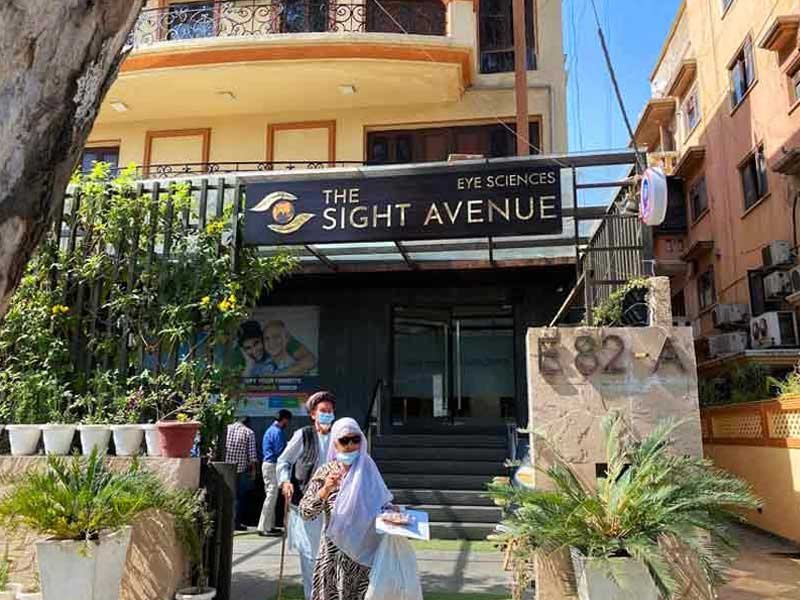Home Treatments Eye Surgery
Eye surgeries, medically known as Ocular surgeries, are various surgeries that they performed on the eye and its adnexa. Eye surgeries are performed by Ophthalmologists.
Cataract: It is the condition where the lens becomes cloudy.
Glaucoma: A group of conditions that damage the optic nerve and lead to blindness.
Retinal Detachments: Sometimes, the retina may pull away from its supportive tissue, causing a detachment.
Diabetic Retinopathy: Diabetic Retinopathy refers to diseases developed in the eyes due to diabetes.
Cataract Surgery: Cataract develops in the eye when a part of the lens becomes cloudy. This causes difficulty in seeing things clearly. In Cataract Surgery, the surgeon removes the cloudy part and substitutes it with an artificial lens.
Glaucoma Surgery (Trabecuelectomy): When extra fluid accumulates in parts of the eyes, Trabecuelectomy is performed. The surgeon makes a small opening under the eyelid, causing the extra fluid to drain out.
Glaucoma Implants: In some cases of Glaucoma, a small tube called a shunt is surgically inserted in the eye's white area. This helps the extra fluid to drain out and lessen the pressure on the eye.
Corneal Transplant: When parts of the cornea are damaged, they are surgically replaced. The surgeon removes the damaged part and replaces it with healthy donor tissues. Two common corneal transplant procedures are penetrating keratoplasty (for the full-thickness corneal transplant) and lamellar keratoplasty (for the partial-thickness corneal transplant).
LASIK (Laser in-situ keratomileusis): This laser surgery is performed when adults face issues like near-sightedness, farsightedness, or astigmatism. The surgeon uses laser light to change the shape of the cornea. This helps in attaining a clearer vision.
PRK (Photorefractive Keratectomy): PRK is essentially an alternative to LASIK. It is performed on individuals who have thin corneas or dry eyes.
Pneumatic Retinopexy: This is a minimally invasive procedure that doesn’t involve any incisions. Pneumatic retinopexy is done to treat detachments in the retina. The procedure involves injecting gas and applying retinal cryotherapy or laser photocoagulation to seal the retinal breaks.
Vitrectomy: Vitrectomy surgery is performed to treat issues occurring in the retina and the vitreous. This includes treating scar tissues causing poor vision in the retina, repairing a pulled retina, etc. Vitrectomy is also the surgical treatment for Diabetic Retinopathy.
Usually, the patient will receive some sort of sedative from the eye doctor. The patient's eye is numbed with eye drops containing a local anesthetic. The problematic intraocular lens will be removed by the surgeon, who will then replace it with a new intraocular lens through a very small incision.
You will be kept awake during a supervised sedation procedure but won't be able to observe the surgeon at work. The operated-on eye will be anesthetized and so effectively unconscious. We'll cover the other eye.
A topical anesthetic may cause you to perceive shadows, colors, and lights. Medications may help in maintaining your calm.
The benefits of eye care are numerous. These include early disease diagnosis, reduced risk of injury, reduced ocular consequences, and diagnosis of underlying disorders. Routine eye exams, using the appropriate eyewear, and following hygienic instructions for handling and wearing contact lenses are all methods to take good care of your eyes.

Beds: 539
New Delhi

Beds: 230
New Delhi

Beds: 710
New Delhi

Beds: 650
New Delhi

Beds: 191
New Delhi

Beds: 310
New Delhi

Beds: 299
Gurugram

Beds: 380
New Delhi

Beds: 402
New Delhi

Beds: 1300+
Gurugram

Beds: 1000
New Delhi

Beds: 675
New Delhi

Beds: 500
New Delhi

Beds: 400+
Faridabad

Beds: 106
New Delhi

Beds: 495
New Delhi

Beds: 104
Gurugram

Beds: 250
Gurugram

Beds: 300
Gurugram

Beds: 162
New Delhi

Beds: 400+
New Delhi

Beds: 380
Faridabad

Beds: 262
New Delhi

Beds: 325
Faridabad

Beds: 550
Gurugram

Beds:
New Delhi

Beds: 2600
Faridabad

Beds: 400
Noida

Beds:
Gurugram

Beds: 450
Chennai

Beds: 560
Chennai

Beds: 400
Chennai

Beds: 300
Chennai

Beds: 300
Chennai

Beds: 180
Chennai

Beds: 200
Chennai

Beds: 750
Mumbai

Beds: 2000
Hyderabad

Beds: 360
Chennai

Beds: 750
Chennai

Beds: 350
Mumbai

Beds: 345
Mumbai

Beds: 300
Mumbai

Beds: 350
Mumbai

Beds: 350
Mumbai

Beds: 310
Mumbai

Beds: 257
Mumbai

Beds: 600
Bengaluru

Beds: 284
Bengaluru

Beds: 450
Bengaluru
.jpg)
Beds: 500
Bengaluru

Beds: 250
Bengaluru

Beds: 80
Bengaluru

Beds: 284
Bengaluru

Beds: 350
Ahmedabad

Beds: 289
Ahmedabad

Beds: 210
Ahmedabad

Beds:
Ahmedabad

Beds: 550
Ahmedabad

Beds: 1000
Hyderabad

Beds: 550
Hyderabad

Beds: 150
Hyderabad

Beds: 400
Hyderabad

Beds: 435
Hyderabad

Beds: 585
Hyderabad

Beds: 600
Pune

Beds: 500
Pune

Beds: 350
Pune

Beds:
Pune

Beds: 120
Pune

Beds: 100
Pune

Beds: 300
Kolkata

Beds: 700
Kolkata

Beds: 316
Kolkata

Beds: 440
Kolkata

Beds: 200
Kolkata

Beds: 1300
Kochi

Beds: 600
Calicut

Beds: 670
Kochi

Beds: 510
Kochi

Beds:
Kochi

Beds: 20
Chennai

Beds: 450
Noida

Beds: 150
Hyderabad

Beds: 500
Mumbai

Beds: 22
Mumbai
Our care team can help you.
